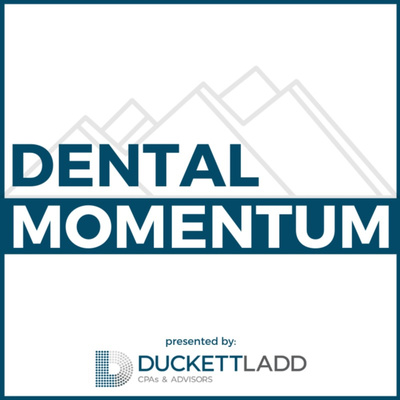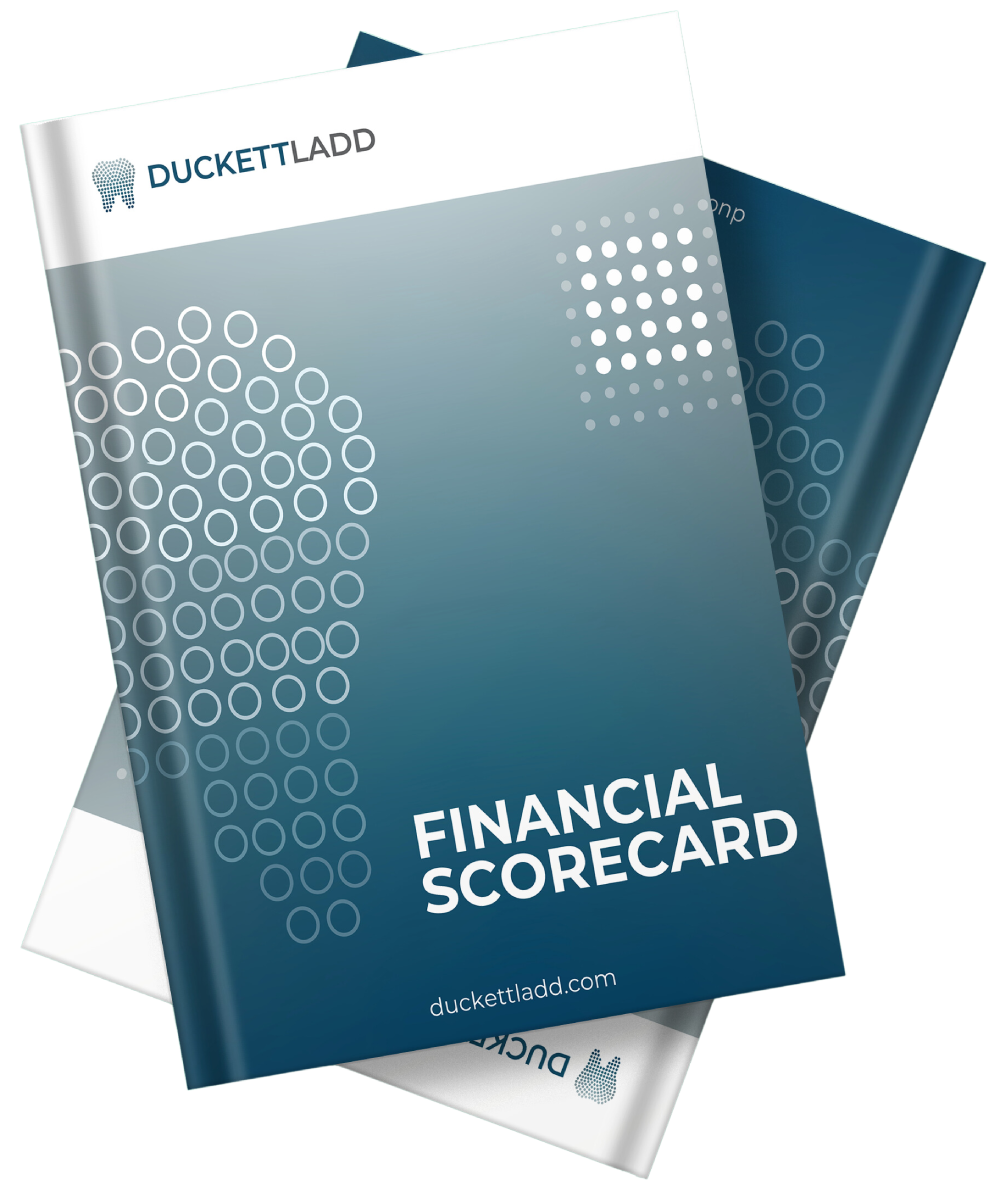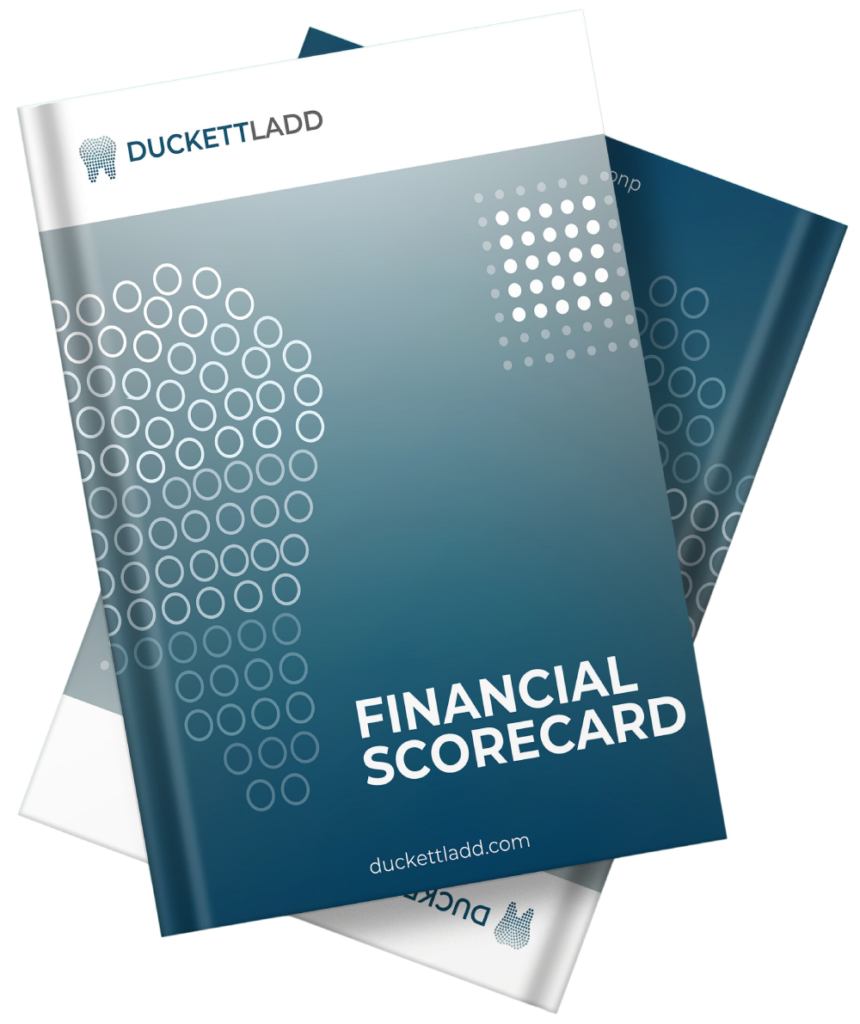As you enter another year of dental practice ownership, it’s time for a few New Year’s resolutions.
While your patients resolve to take up daily flossing, what commitments are you ready to make?
If your goals for the new year include improvements in the areas of financial planning, budgeting, and bookkeeping, then these dental practice accounting tips are for you. Here are a few ideas for establishing efficient money habits at your dental practice.
Review Your Practice’s Accounts Receivable and Accounts Payable
To get your practice’s financial house in order, the best place to start is with a review of your accounts receivable and accounts payable.
Start with your accounts receivable records, which should include all of the monies owed to your practice for goods or services. This likely consists mostly or entirely of payments owed by patients.
A comprehensive review of your accounts receivable produces valuable data about collection rates, the profitability of various services, and the overall financial assets of your practice.
Most importantly, reviewing your accounts receivable leads to the procurement of funds that rightfully belong to your practice. If you have any patients who are significantly delinquent on their bills, you can consider working with a collection agency to track down these overdue payments.
Next, review your practice’s accounts payable. These include all of the monies you owe to suppliers and creditors. If you’re behind on any payments, reach out to the other party to provide an update on your payment plan.
Make a Budget
If you don’t have a budget, make one. Then, make budget reviews a regularly scheduled administrative task.
A dental practice budget typically includes:
- Payroll and benefits
- Rent or mortgage plus property upkeep costs
- Equipment and Supplies
- Utilities
- Lab work
- Marketing and promotional activities
- Insurance
- Miscellaneous costs
A budget is an essential tool for any business owner. A detailed and current budget helps you plan for large expenses, recognize opportunities for growth, and avoid financial mishaps such as overdrawn accounts.
If you aren’t sure how to get started with budgeting, ask your financial planner for guidance and a template.
Review Your Practice’s Financial Progress Regularly
Is your dental practice’s financial performance living up to the expectations that you started with? Is your business growth sustainable and strong enough to support your personal career and retirement goals?
To answer these questions, it’s important to regularly take a detailed and honest look at your practice’s financial progress. This includes comparing your current revenue to that of prior years, making projections, and setting goals.
Invest in Accounting Software
Implementing accounting software is a great way to improve your practice’s bookkeeping and accounting efficiency. Accounting software automates data entry tasks, simplifies calculations, and provides an organized and centralized location for your financial records.
Even if you work with a CPA, using your own software is helpful for tracking day-to-day operations. There are a number of popular accounting software programs designed specifically for healthcare. Ask your CPA or financial advisor which program they recommend.
Review Your Practice’s Insurance Coverage
Dentists who own their own practices typically carry malpractice insurance, also known as liability insurance. Malpractice insurance policies cover legal expenses and settlement costs for dentists who are faced with malpractice lawsuits.
Additionally, a dental practice owner needs a business owner’s policy. This covers general liability, i.e. claims made against the practice that involve personal injuries or property damage. A business owner’s policy may also cover your building and equipment.
Insurance costs are typically minor, but that doesn’t mean you should take your insurance decisions lightly. As your practice grows, your coverage needs may change.
As part of your new year’s financial housekeeping, review your insurance policies to make sure that your coverage and premiums are satisfactory. Discuss your policies with your agents and your financial advisor to make sure that your practice is sufficiently covered but not overpaying.
Work With a CPA to Streamline Your Practice’s Financial Operations
Whether your dental practice is brand new, already thriving, or going through a rough patch, Duckett Ladd is here to help you reach your next set of financial goals. We’re a team of CPAs and advisors exclusively serving the dental profession.
Our financial services include:
- Dental practice growth
- Dental practice mergers and acquisitions
- Accounting business services for dentists
To learn more, reach out to our team of dental industry experts today.








